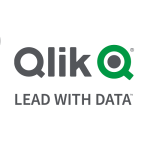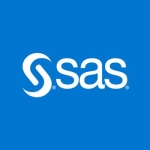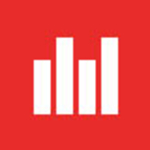What is our primary use case?
It was for dashboards. The key use case was for creating visibility to performance metrics for the leadership team. It was the most recent version, and it was deployed on-prem.
How has it helped my organization?
The key use case that we were going after very specifically created visibility to performance metrics for the leadership team. So, it allowed us to give that common view of performance metrics and drive business conversations based on the common shared set of facts. We were able to expose data and relationships that we otherwise couldn't do in our enterprise system silos. From that perspective, we were incredibly successful in really driving performance. When you combine that with some real championing in the business and with some leadership to push it down, the fact that it was Tableau wasn't as relevant as the fact that we had the championing pushing the process and pushing it down.
What is most valuable?
The number one thing was just the ease of getting something up quickly. The other thing that was good about it was that it was fairly fast for decent-sized data sets in terms of performance and run time.
What needs improvement?
From a downside perspective, some of the more advanced modeling techniques are actually fairly difficult to do. In addition, I just fundamentally disagree with the way you have to implement them because you can get incorrect answers in some cases.
One of the key challenges is that you never know whether it is how your developers developed it or whether it was the tool. We did find that once we got into more complex models, the ability to keep objects that should tally the same way but didn't became more and more difficult. That was probably the big thing for me. I don't know enough about how the tool was developed to know whether that was because they didn't follow a recommended practice. That was probably the number one thing that I found frustrating with it.
When we started to try and get into some very granular data sets that had some complex relationships in them, the performance on it degraded pretty quickly. It did degrade to such an extent that we couldn't use it. We had to change what we were trying to do and manage its scope so that we could get what we wanted out of it or reduce the scope of what we needed out of it. It doesn't have a database behind it, per se. So, while doing some of the more complicated things that you might otherwise do on a database, we started hitting some pretty significant challenges.
For how long have I used the solution?
I used it for about three years.
What do I think about the stability of the solution?
Tableau worked fairly well for straightforward data sets, but it struggled when we got into the more complicated data sets and larger data sets.
What do I think about the scalability of the solution?
We were able to deploy it fairly broadly without a whole bunch of work. From that perspective, it worked fine. I was deploying my stuff to about 200 users across Canada, and I don't think we saw a blip on the server when people logged in. It was fine. If we were to roll out some of the bigger applications broadly, like the ones that we were having performance challenges with, we probably would have crushed the box. We would have had to get more CPU. Most likely, it would have been a memory issue, but we never hit that inflection point.
There were about 200 users of the solution. It went all the way from the equivalent of a senior vice president and all the way down to the equivalent of a line manager. So, we had business unit leaders, vice presidents, and operational managers.
It was being used extensively for a specific use case. There were lots of other use cases that it could be used for, but there needs to be an appetite from leadership to go, drive, and commit resources to go do that.
How are customer service and technical support?
I didn't have to deal with technical support. Mr. Google is pretty good on the topic.
Which solution did I use previously and why did I switch?
We had previously used Cognos to do the exact same thing. The only reason why we replaced it was that the business decided to go towards Tableau. Otherwise, there really wasn't any real reason to replace it. It was probably a little bit easier and more interesting for people to learn and to develop applications in the program than in Cognos. The ramp-up time to get to reasonably proficient in Tableau plus the support through Mr. Google made it a lot easier for me to get resources and do development on Tableau as compared to Cognos.
The organization decided to move away from the old platform. So, basically, I was lost when they asked me to shift off so that they could shut it down. I personally prefer the previous platform. I understood it very well. I had used it for years, and it worked just fine. For the most part, the challenges that we had on the old platform were not resolved by Tableau, which just reinforced to me that it wasn't a tool problem. It was a people problem.
How was the initial setup?
It was pretty straightforward. The big thing that confuses people in a project that involves Tableau is that Tableau is a very visible but small component of the overall solution. That's because 80% of the work is data. It is not Tableau. So, Tableau is actually a fairly small component over that overall solution. It took a few days to get it up and going. Almost 80% of the work is actually on the data side, which takes forever, but the actual Tableau component of it was pretty straightforward. It was not that difficult.
You can get a Tableau dashboard up on a weekend. It is not hard to get something up and running. It is pretty trivial. It isn't any more or less difficult than any other tool to get up and going. I've used a number of them, and they're all pretty easy to get up and going. Tableau was the first one out of the gate with this democratized data perspective, where they were going to do departmental BI and up to enterprise BI years ago. Now, they now charge a fairly hefty premium to leverage that product. It is not a cheap product.
In terms of maintenance, it can take as much or as little as you want because it just runs. So, technically, you don't have to have anybody to do very much. You just need a very skeleton crew to operate as is. The challenge that you run into with solutions like this is that you need to continue to refresh the information with new and different views because people want to know more, and they want to go deeper into it. It is not a function of the technology. It is a function of the use case. So, you tend to have lots of new requests for new reports and analysis, and that's where you tend to have more challenges.
We didn't get into analysis users who are able to sort of do a little bit more themselves. There were viewer licenses where you are just using preset reports, but there are obviously additional training and things like that, and you have to deal with it if you start getting into more advanced power users.
What about the implementation team?
I was at another company, and we were the integrator.
What's my experience with pricing, setup cost, and licensing?
It is fairly expensive. I have no idea what they paid. We were on an enterprise license, so whatever it is they licensed at the enterprise level is what we paid.
What other advice do I have?
A good chunk of it has got nothing to do with the tool. It has everything to do with your leadership and your governance requiring it. We had our IT team roll up Tableau multiple times and not a single person used it because there just wasn't enough leadership support to use it. There is nothing wrong with the tool, and it worked fine for what it did, but every time I logged into it, I go, "Okay, but what did you want me to actually do with this? I see all this information. I understand it clearly. I'm not sure what I do with it though." So, without that additional guidance from leadership, rolling it out is irrelevant. You need to have that strategic leadership associated with it.
The key piece of advice would be that you got to look beyond your tool. You need to look at how you're going to get this information used in your organization. What kind of leadership support, governance support, and ongoing support are you going to have? It is all based on trusted data. The value of the tool is based on the quality of your data and the leadership's support to use it. So, if you don't have high-quality data and you don't have leadership support to use the data, you don't need any tool because nobody is going to use it.
I would rate Tableau a seven out of 10. It suits the purpose, but in and of itself, I don't think it is significantly better or worse than its key competitors.
Which deployment model are you using for this solution?
On-premises
Disclosure: I am a real user, and this review is based on my own experience and opinions.


















Great Review for Decision Makers.